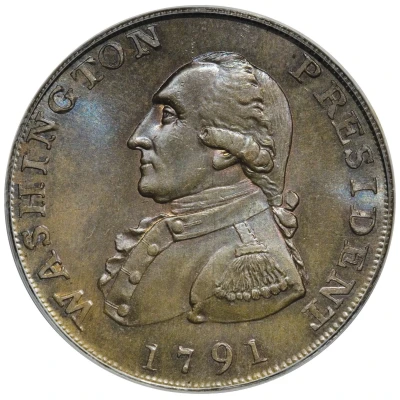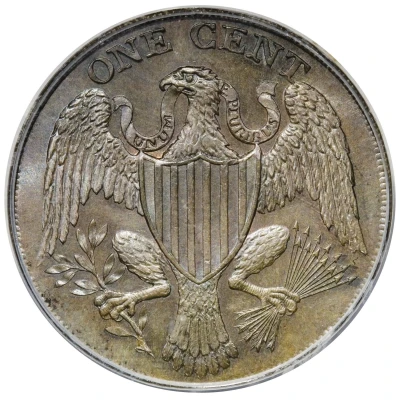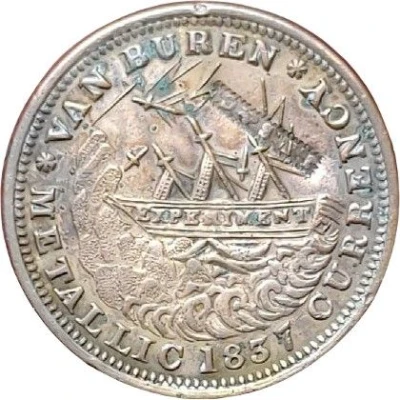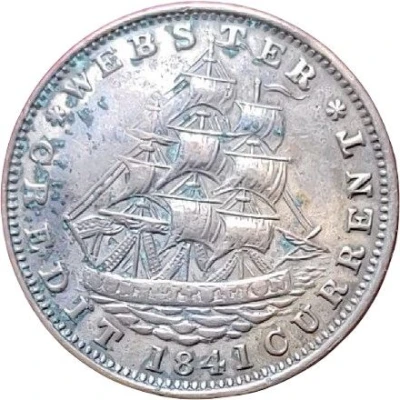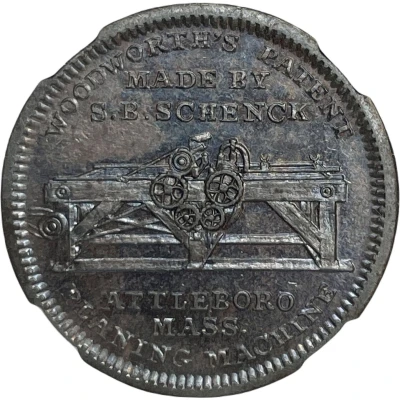
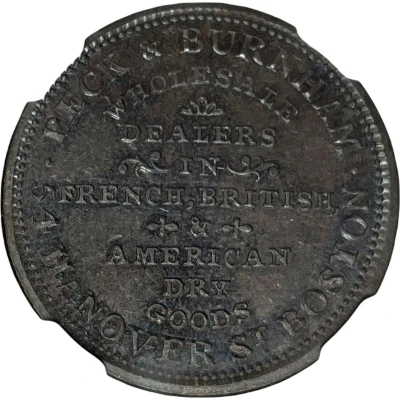

© tpal1961 (CC BY)
Hard Times Merchant Token – S. B. Schenck / Peck and Burnham Attleboro, MA / Boston, MA
1834 year| Copper | 9.15 g | 28.5 mm |
| Location | United States |
|---|---|
| Type | Medals › Advertising medallions |
| Year | 1834 |
| Value | 1 Cent (0.01) |
| Composition | Copper |
| Weight | 9.15 g |
| Diameter | 28.5 mm |
| Shape | Round |
| Technique | Milled |
| Orientation | Coin alignment ↑↓ |
| Demonetized | Yes |
| Updated | 2024-11-12 |
| Numista | N#51362 |
|---|---|
| Rarity index | 100% |
Reverse
Legend
Script: Latin
Lettering:
PECK & BURNHAM 54 HANOVER ST BOSTON
WHOLESALE DEALERS IN FRENCH, BRITISH, & AMERICAN DRY GOODS
Edge
Plain
Comment
Russell Rulau assigned two Hard Times numbers to this token HT-160 and HT-168. That is because it is a muling combining Schenck’s HT-158 obverse on one side and Peck & Burnham’s HT-167 obverse on the other. It is R-2 with 501-1250 known.Samuel Blackwell Schenck (1806–1861) founded the Schenck Machine Works in Attleboro, Massachusetts in 1832 and its main business was building Woodworth Planing Machines. Schenck was part of a syndicate that bought most of the patent rights from William Woodworth in 1832. Operators of this planing machine were required to charge $7 per 1000 lineal feet to customers and to return $3 of that to the syndicate. The syndicate held a lucrative monopoly for planing machines, and bought out rivals, until their patent expired in 1856.
Abel Gaylord Peck and Willard Burnham ran the Peck & Burnham dry goods shop at 54 Hanover Street from 1832 to 1835. Per a Boston Sunday Globe article, Hanover Street had several of the largest and most popular dry goods, milliners, dressmakers, and shoe stores in Boston at the time. Hanover Street also was the headquarters for stagecoaches and “it was a sight to see the entry or the departure of these coaches and hear the crack of the driver’s whip.” Peck (1807-1870) stayed in Massachusetts and had other business partners until his death. Burnham (1799-1852) moved with his family to Cleveland, Ohio after 1836 and he died there in 1852.
Willard Burnham
